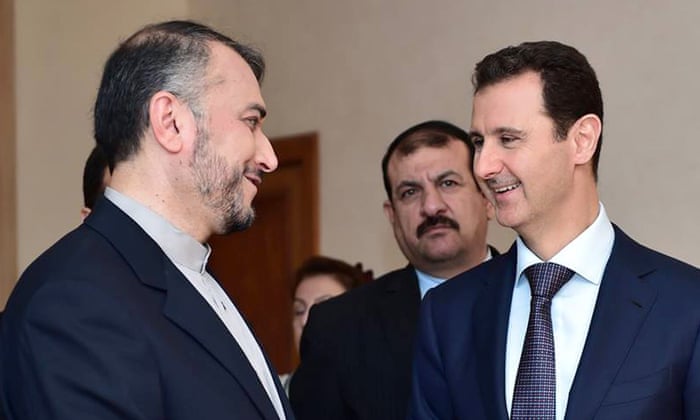
Iran's invitation to Syria talks marks significant shift for US and allies
Tuesday, October 27, 2015
No comments
...
Unlike the countries that support the anti-Assad rebel groups, Iran has taken an unwaveringly strategic view of the crisis, consistently backing Damascus while pursuing its own interests. It has provided billions of dollars in cash and loans, as well as advice and expertise.
Its military role in Syria has been shadowy but vital, deploying Revolutionary Guards as advisers and overseeing offensives by its Lebanese ally Hezbollah and Shia fighters from as far afield as Iraq, Afghanistan and Pakistan. It has raised its profile slightly in recent weeks as the forces it commands have taken part in Assad’s offensive against Aleppo. It has also suffered casualties that are starting to be noticed at home.
Iran’s formal position is that it backs a political solution to the crisis, but unlike Russia it has never signed up to the idea that it could end with a “Syrian-led political transition” that would almost certainly exclude Assad. That ambiguously-formulated idea lies at the heart of the Geneva conference communique of June 2012 - the basis for all international efforts to find a way out of the impasse.
“In any political process the role played by Bashar al-Assad will be important,” Iran’s deputy foreign minister, Hossein Amir Abdollahian, told the Guardian in an interview last week.
“We are not working for Assad to stay in power forever as president, but we are very cognisant of his role in the fight against terrorism and the national unity of that country. The people of Syria will make the final decision and whatever decision they take, we will endorse.”
read more >>







































